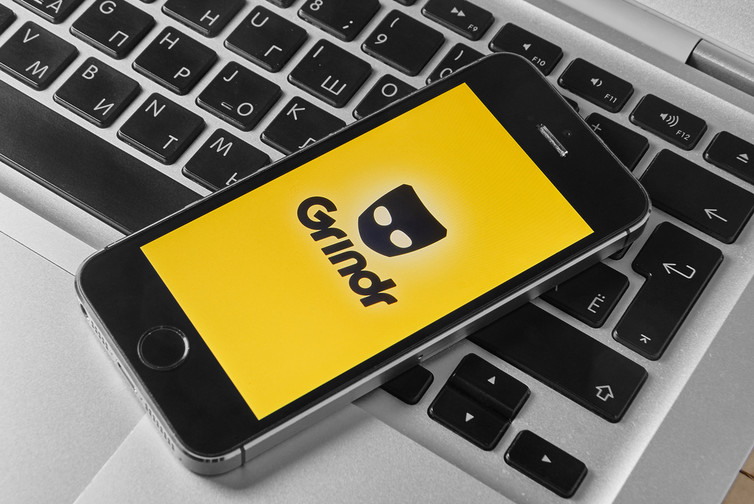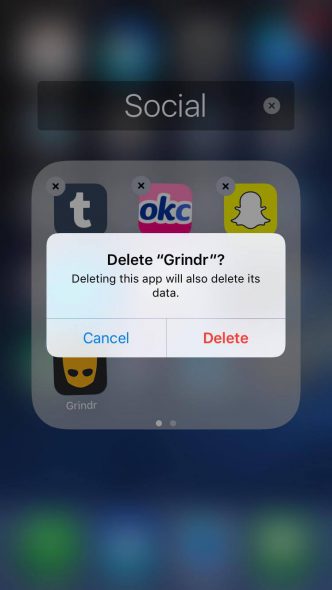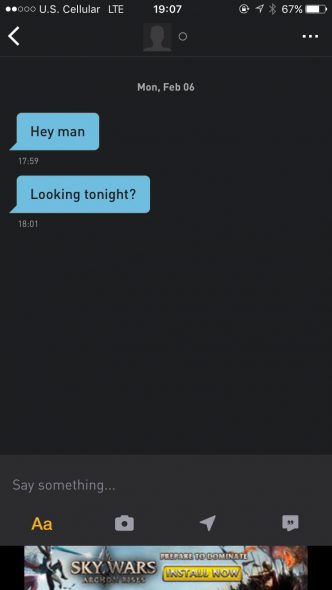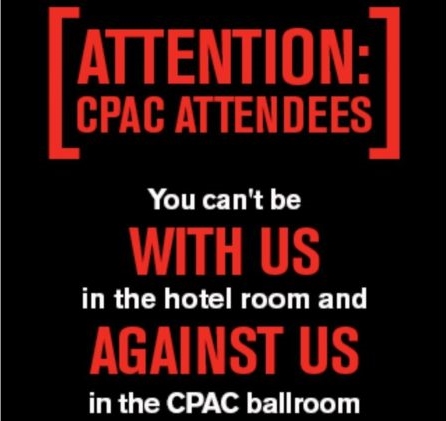The Rise of Hookup Apps
Grindr has transformed how gay men meet. Is that good news or bad?
“You can always tell who’s on Grindr in the bar,” said a friend of mine. “They’ve all got that same orange glow of expectation on their face.”
Eight years ago this month, hookup apps came out of the closet and started a sexual revolution that changed the world. When Grindr burst on the scene in March 2009, online cruising leapt from laptop computers to the palm of your hand. If you believe the hype, gay romance died with the very first download.
True, hookup websites were long part of gay culture, ranging from 1990s AOL chatrooms to Gay.com to Manhunt to Adam4Adam.com. But Grindr gamified the thrill of the hunt in real time and real space with geosourcing networking. Now your next big thing could be as close as 10 feet away. Grindr eliminated all the awkwardness and pretense of first dates, as well as all the chasing and waiting of closing time hookups. Shopping for sexual partners quickly became as easy as shopping for any other consumer product.
Gay men slowly mastered the art of being multipresent: navigating an above-the-line existence in the real world, while simultaneously exploring a below-the-line existence in a stigma-free, sex-positive world of brutally honest browsing.
Since the days of hankie codes and tearoom trades, hookup culture has always been part of gay identity. So why were hookup apps such a big deal? It meant semi-anonymous sex was no longer dirty, scary or shameful. Looking for love online has been normalized. Social historians believe that apps like Grindr have finally liberated LGBTQ youth from the internalized homophobia that haunted past generations.
Hookups were once the alternative to serious dating. Now, they’ve become the test drive. Chatting with your date about whether or not it’s time to delete dating apps used to be the first sign that your relationship had achieved “serious.” Now, they’re not just for single people anymore. I’m amazed at the number of committed-ish couples I know who are both active on apps, without monogamy and fidelity being called into question.
I suspect that underneath that need for newness is the old idea that the grass is always greener elsewhere. I also know that the ever-present temptation of newness is more than some relationships can handle. Discovering Grindr on your partner’s phone has become the new lipstick on the collar. Seeing who your ex- or current partner claims to be, and how they market themselves on their Grindr profile, can feel like you never really knew them at all – or, more likely, they never knew themselves and still don’t.
Hookup apps have been blamed for promiscuity, sexual addiction, increased sexually transmitted infections, and the spread of HIV. Surprisingly, Grindr and Scruff might be doing a better job of inspiring HIV prevention through PrEP (pre-exposure prophylaxis) awareness than government health agencies. Certainly, they’re doing better than the Republican Party, whose Affordable Care Act replacement seeks to complicate access to PrEP and other HIV prevention programs. Grindr has actually been a leading advocate for PrEP since 2014, and regularly broadcasts safe sex messaging to its users. In a recent Grindr for Equality survey, 26 percent of participating Grindr users were already taking PrEP and another 56 percent were interested in taking it in the future. Ninety percent had been following the recommended daily dosage since the time of prescription.
There’s a health issue here that could quickly become fascinating: when apps encourage users to share HIV status and PrEP usage in their profiles, could online channels actually become safer than offline hookups?
Today’s love-hate relationship with apps is similar to the earlier love-hate relationship with bathhouses. Imagine the regrettable fling that you know you need to stay away from, but honestly, can’t resist. When there’s a bender in your pocket waiting to happen anywhere, any time, with anyone, how do you resist?
Is it any wonder that one-third of the gay bars in America have closed since Grindr launched in 2009? Over the past eight years, two-thirds of Milwaukee’s LGBTQ bars have closed, as well the city’s last bathhouse.
Hookup apps have definitely inspired new levels of sexual curiosity, flexibility and exploration. With over 5,000 online dating apps worldwide at this exact moment, trust me when I say “there’s an app for that.”
Keeping kosher? JDate. Looking for a threesome? Feeld. More specifically, looking for a bisexual threesome? BothWays. Searching for someone in the kink community? Whiplr. Want to find someone who hates the same things you do? Hater. Only interested in smart people? Sapio. Serious about sci-fi lovers? Trek Passions. Like bearded men? Bristlr. Joining the Mile High Club on your next flight? Wingman. And, when you’re just looking for someone who shares your lifelong love of bacon, there’s Sizzlr from Oscar Meyer.
No, I’m not kidding.
True confession: I’ve somehow made it to 2017 as the last American Grindr virgin.
Why? I’ve been in long-term relationships since the days when America Online was the only Internet most people knew. I don’t harbor any strange moral hang-ups about hookup apps, they certainly have their time and place for everyone. Maybe I’m an old-fashioned romantic who wants more than just fast and easy fun. Maybe I’m just skeptical because I’ve lived in Milwaukee forever and can’t imagine discovering someone I don’t already know.
It has been culturally fascinating to watch the world changing around me, as seemingly everyone is navigating a dimension that I’ve never visited myself. There are definitely some human anthropology lessons emerging here, as social technologies are creating entirely new social behaviors. There’s a lot to see here, including catfishing (pretending to be someone you’re not, in order to connect with someone online); ghosting (suddenly cutting off all communication, blocking contacts and disappearing); bread-crumbing (sending someone random, flirtatious messages that express interest but offer zero commitment); and benching (keeping someone waiting on your dating roster for their turn to play).
Surrounded by game-players, fakers, flakers, lurkers and stalkers, it can be very difficult to believe in true love. When you’re not meeting someone face-to-face, it’s very easy to ignore the simple courtesies of the real world. App culture can sometimes seem very dehumanizing.
Spoofing, the latest Grindr trend, might be the strangest yet. Imagine finding out that someone had used your social media accounts to create a fake, and very aggressive Grindr profile for you. Imagine having Grindr refuse to remove the counterfeit profile until you sued for defamation. This recently happened to a New York actor, who found himself besieged by over 700 sex-seeking men before his ordeal was over.
We should also consider how many LGBTQ and questioning youth began exploring and expressing their sexuality online first. Although Grindr requires all users to confirm they are age 18 or older, most app-related sex crimes involve older men connecting with minors. A quick Google search brings up dozens of these sordid stories, as well as one especially curious turnabout. Earlier this year, four teenage Australian boys were charged with running a “pedophile hunter” operation that targeted Grindr users for attempting to connect with underage boys.
As exhilarating as apps can be, there’s still some danger lurking around the edges. Last year, Grindr and Tinder were linked to over 500 violent crimes in the United Kingdom alone. Dating app crimes saw a 2000 percent increase in two years, compared to crimes involving Facebook (21 percent) or Twitter (19 percent). This isn’t the stuff of urban legends anymore – it’s the content of hundreds of frightening police reports around the world.
Even in Milwaukee, missing persons stories often involve someone being suspiciously separated from their friends after receiving a message on their phone, only to never be seen again.
Given our increasingly volatile political landscape, it should surprise nobody that Grindr is being weaponized as a voice of resistance. Last month, the Human Rights Campaign ran a Grindr ad targeting Conservative Political Action Committee attendees in Alexandria, Virginia. “You can’t be with us in the hotel room and against us in the CPC ballroom,” read the ad. Interestingly, Grindr saw a 120 percent increase in local activity during that convention, mainly white male users using the keywords “visiting” and “RNC.”
Dating apps have become a complex world of looking into an abyss and knowing the abyss is looking right back into you. And you never know when you might be tempted to look.
Be careful out there.
If you think stories like this are important, become a member of Urban Milwaukee and help support real, independent journalism. Plus you get some cool added benefits.
Out Look
-
The Enduring Legacy of Eldon Murray
 Aug 1st, 2019 by Michail Takach
Aug 1st, 2019 by Michail Takach
-
The Flag Stands for LGBTQ People, Too
 Jul 4th, 2019 by Michail Takach
Jul 4th, 2019 by Michail Takach
-
The Battle for Juneau Park
 Apr 14th, 2017 by Michail Takach
Apr 14th, 2017 by Michail Takach


























Excellent summary of the state of affairs with dating apps!